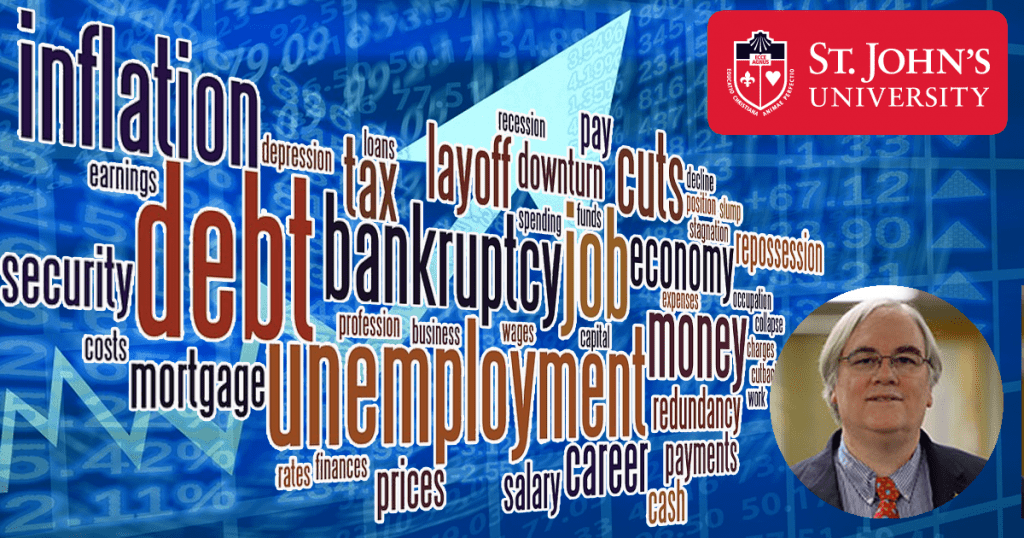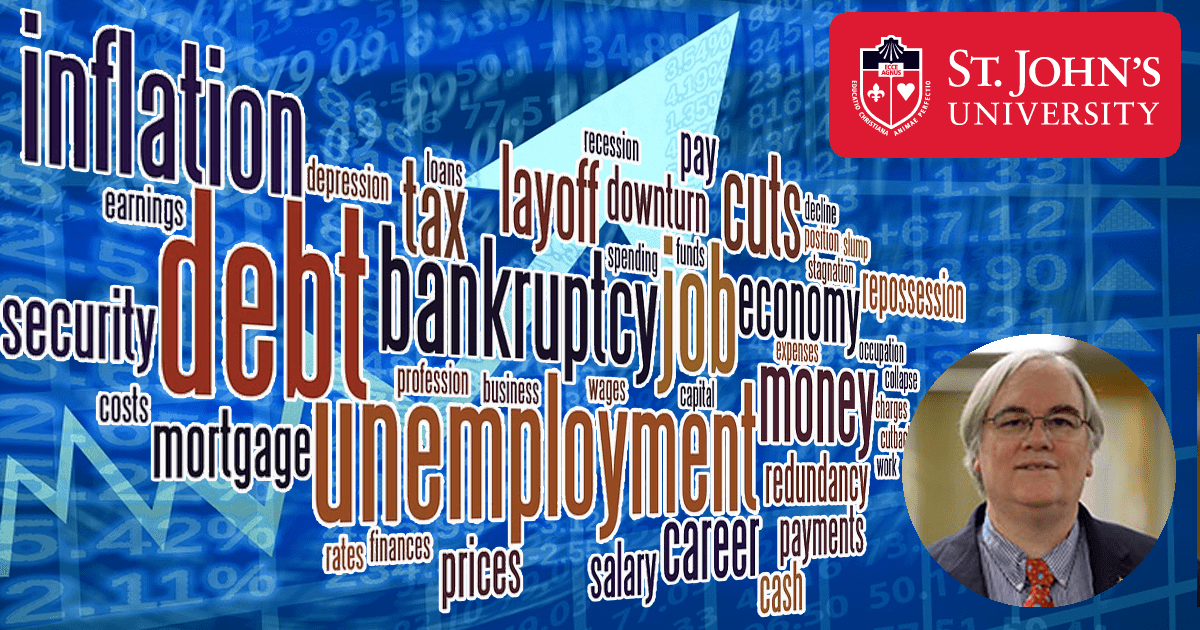“Why the Wealth Gap is Bad for Everyone”

Looking for an interesting, insightful and challenging read on economic inequality and why the wealth gap is bad for everyone? Below is the beginning of an article from an interview with Charles Clark, economics professor at St. John’s University in New York. Clark discusses applying Catholic social teaching to real world economics as a solution to market rules that favor the rich at the expense of the poor. It may take some time, but it is well worth a read!
Charles Clark probably doesn’t win a lot of friends in his chosen profession when he says that most economists don’t really understand the economy. But even though he earns a living teaching economics at St. John’s University in New York, Clark believes that understanding how the economy really works requires more than just a classroom education.
“I’ve probably learned more about economics working in factories than I did from my Ph.D. program,” says Clark. Working on an assembly line in a motor oil canning factory for $2.35 an hour, he saw how racial and ethnic minorities are treated differently in the workplace. A job at a wire striping factory helped to illustrate Adam Smith’s theory on the division of labor. And earning $9.10 an hour to wash pots at a nursing home helped Clark appreciate the power of unions.
In the real world Clark found that ideologies proposed by economists fail to hold up. “This is really the big problem with my profession,” he says. “We look at markets as if they’re like the ones we teach in textbooks and they’re all the same. But they’re not. Every market has to be established with a set of rules.”
Too often, Clark argues, those rules favor the rich at the expense of the poor. But applying Catholic social teaching to real world economics may just offer a solution that benefits everyone. Hopefully his students are taking good notes.
What do most economists get wrong about the economy?
They have this one theory, which they don’t know well enough to know that it doesn’t hold together, and they just keep on applying it. It’s all based on this idea that the market will always lead you toward full employment if you get out of the way. But there’s no evidence of this working.
Whenever we move more in that direction, we crash the economy. We did this in the 1920s and ended up with the Great Depression. And following the era of Ronald Reagan and Margaret Thatcher, we’ve had more financial crises in the past 20 years than we’ve had Olympics.
The problem with most economists is that they have an ideology that they will not think outside of. The one thing about Catholic social thought that makes it so challenging, at least for academics, is how unideological it is. Even though it’s based on universal ideals and universal principles, what matters is what actually works. You can’t just wish things to work.
That’s the problem for someone like Paul Ryan. What he thinks he knows about the economy is completely wrong.
What is he wrong about?
Ryan has this idea that we can help the poor by getting rid of government. Find me one example where that’s happened. He thinks we can improve health care if we promote market competition. Find me one example where that’s happened.
My complaint with Paul Ryan isn’t that he’s a bad Catholic. I have no idea whether he’s a good Catholic or not. My problem isn’t even that he doesn’t understand Catholic social thought. He doesn’t, but lots of people go to heaven not knowing what subsidiarity really means. We don’t have to pass a test to get into heaven, I hope.
The problem with Paul Ryan is that he doesn’t understand the nature of a modern capitalist economy. His policies are all ideologically driven. He gives policy-based evidence, in that he looks for evidence to support the already reached conclusion that markets always work and governments are bad. What is needed is evidence-based policy—what work to create jobs or reduce poverty. Look around the world and you will see that austerity only increases unemployment and poverty.
First, we can stop the job-killing austerity policies and the irrational fear of budget deficits and government spending that have paralyzed Washington. We have a jobs crisis, yet few people in Congress are talking about job creation. But even if we had full employment, we would still need policies to address poverty.
As a Catholic you have to say, “Well, there are people who are hurting, so I have to help them.” Then you have to figure out what actually helps them. I think Ryan’s own children would have to be thrown into poverty before he realizes that his policies are actually hurtful to poor people.
Want to read more? To read the article in its entirety, click here.
Tags:







Interesting. Thanks
Thanks Charlie, I guess we can conclude that a “rising tide does not float all boats”. One has to have a boat and it has to be seaworthy and if it is on the edge of the shore it will most likely be damaged by the tide forcing it into the rocks.
Looking forward to more helpful analysis of the wealth gap. It sure provides for very different perspectives of the world.